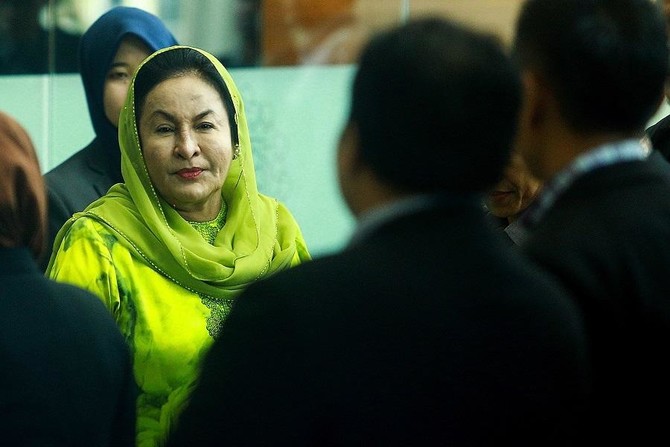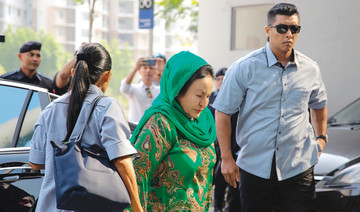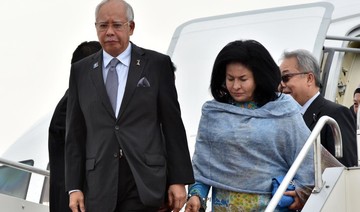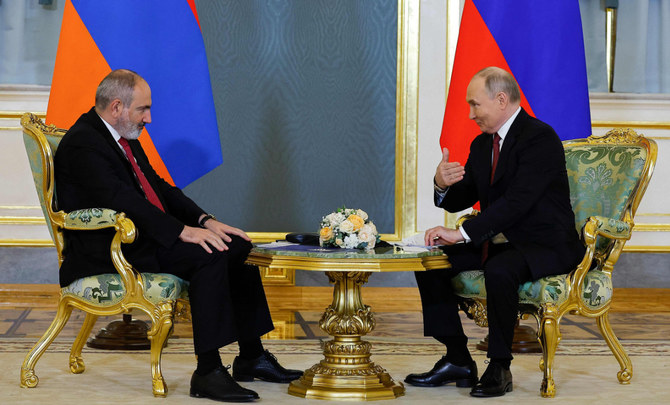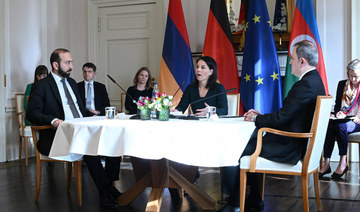KUALA LUMPUR, Malaysia: The wife of former Malaysian Prime Minister Najib Razak was arrested Wednesday by the anti-graft agency and is expected to be charged in a scandal involving the 1MDB state investment fund, a government official said.
The official, who declined to be named due to the sensitivity of the matter, said Rosmah Mansor was arrested after she was questioned by the agency for a third time over alleged theft and money laundering at the fund.
Rosmah’s lawyer, K. Kumaraendran, confirmed her arrest but declined to give details. The agency was expected to issue a statement soon.
Wearing a bright green traditional dress, Rosmah smiled at reporters but didn’t speak as she arrived at the agency’s building. She was first summoned by the agency on June 5 and again on Sept. 26, when she was questioned for nearly 13 hours. Local media have reported that she could face up to 20 charges, mostly related to money laundering.
Former Prime Minister Najib has pleaded not guilty to multiple counts of money laundering, corruption, abuse of power and criminal breach of trust in the scandal and is to face trial next year.
Earlier Wednesday, Najib was questioned by the police commercial crime office over the 1MDB scandal. He dodged reporters waiting for him outside the building.
Rosmah, 66, is widely reviled for her opulent lifestyle and penchant for expensive jewelry and designer Birkin bags that led to her being compared with former Philippine first lady Imelda Marcos and her extravagant collection of shoes.
Police found hundreds of luxury handbags, jewelry and cash — worth more than $266 million — during raids on apartments linked to the family shortly after Najib’s shocking electoral defeat in May. Seized were 567 handbags, 423 watches and 12,000 pieces of jewelry, including 1,400 necklaces, 2,200 rings, 2,800 pairs of earrings and 14 tiaras. Najib has said the items were mostly gifts to his family.
In a biography in 2013, Rosmah said it was common for a prime minister’s wife to receive expensive jewelry and gifts. She also said she had earned millions of ringgit from her own music album, which wasn’t released to the public but was bought by government ministers who were fans of her singing talent.
Najib set up the 1MDB fund when he took power in 2009, but it accumulated billions in debts and is being investigated in the US and several other countries. US investigators say Najib’s associates stole and laundered $4.5 billion from the fund from 2009 to 2014, some of which landed in Najib’s bank account. They say $27.3 million was used to buy a rare diamond necklace for Rosmah.
Public anger over the scandal eventually led to the ouster of Najib’s long-ruling coalition in May 9 elections that ushered in the first change of power since Malaysia’s independence from Britain in 1957.
New Prime Minister Mahathir Mohamad reopened investigations into 1MDB that were suppressed under Najib’s rule. He has also banned the couple from leaving the country.
Police have said investigations show that $972 million was transferred into Najib’s bank accounts from three companies linked to 1MDB. Najib, 65, has accused Mahathir’s government of seeking political vengeance against him and his family.


